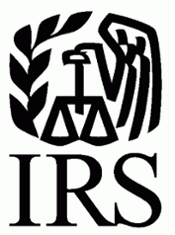On Aug. 8, President Donald Trump issued a memorandum on deferring payroll tax obligations in light of the ongoing COVID-19 Disaster, which directed the Treasury Department to suspend collection of the employee portion of Social Security taxes from Sept. 1 through the end of 2020.
The deferred taxes will have to be repaid unless Congress enacts legislation stating otherwise.
On Aug. 28, the IRS issued guidance related to the President’s memorandum.
 The IRS guidance said companies may elect to defer the employee’s portion of social security tax from wages beginning on Sept. 1, 2020 and ending on Dec. 31, 2020, but only if the amount of the wages paid for a bi-weekly pay period are less than $4,000. The deferred taxes are required to be withheld from compensation and remitted by the employer from wages paid from Jan. 1, 2021 through April 30, 2021, which will be in addition to social security taxes related to the compensation earned in the first four months of 2021.
The IRS guidance said companies may elect to defer the employee’s portion of social security tax from wages beginning on Sept. 1, 2020 and ending on Dec. 31, 2020, but only if the amount of the wages paid for a bi-weekly pay period are less than $4,000. The deferred taxes are required to be withheld from compensation and remitted by the employer from wages paid from Jan. 1, 2021 through April 30, 2021, which will be in addition to social security taxes related to the compensation earned in the first four months of 2021.
“If necessary, the Affected Taxpayer may make arrangements to otherwise collect the total Applicable Taxes from the employee,” the notice stated.
As the employer is the “Affected Taxpayer” responsible for the collection and remittance of the deferred taxes, business may need to try to collect the deferred taxes from an employee who is no longer employed as of Jan. 1, 2021. Due to these uncertainties, it is our recommendation businesses consult with their tax advisors before deferring the withholding and remittance of these taxes.
Even with this guidance being issued, there are still more questions than answers on the deferral.
We have many concerns surrounding the liability that would shift the risk to the business if they choose to defer employee social security taxes, as well as the burden it would put on employees in the first four months of 2021 in order to pay double social security taxes during that period.
There are also many questions on how this will be reported and tracked.
The untimely guidance also left little to no time for employers to decide if the deferral would be right for them.
More guidance may be released in the coming days, but unless something dramatic changes, we would maintain our position that deferring employees social security taxes for the balance of 2020 may not be a good idea for most businesses.





